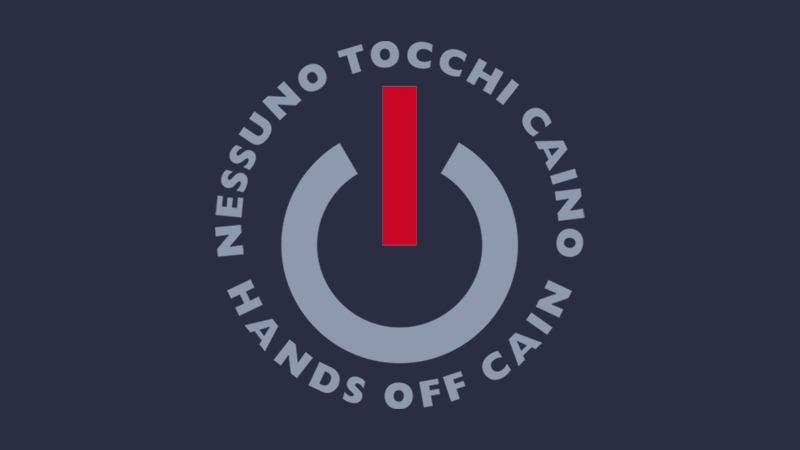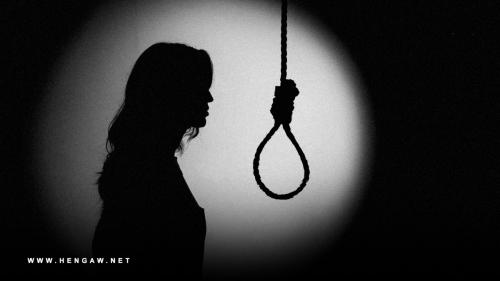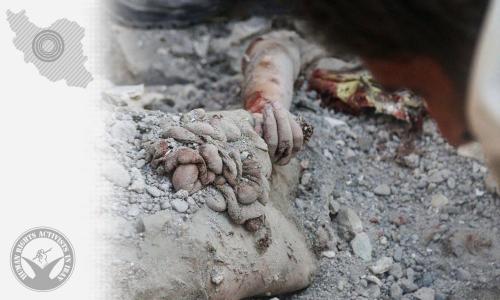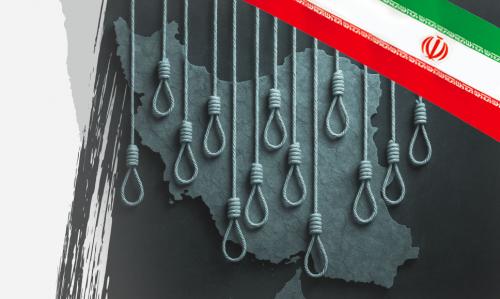05 April 2012 :
The approval, in December 2007, of the Resolution for a Universal Moratorium on Capital Executions by the General Assembly of the United Nations, was a fundamental step, not only in the struggle against the death penalty, but also in the affirmation of the Rule of Law, as well as those natural rights historically taken up and often written into the laws of Nations, but not always respected.After that vote, the usual, jaded commentators, nurtured in opinion by the limits of realpolitik, sought to play down its importance, stating that “it doesn’t really mean anything”, it has no legal power, and it is not binding upon Nations. True, the United Nations may not, according to its own statutes, force any of its member-States to abolish the death penalty, but the “moral” value of the Resolution cannot be denied regardless, or the political impact of such document, which spells out a guideline for States that still practice the death penalty. For the first time, the United Nations has established that the question of the death penalty is part of the sphere of human rights and not the internal justice of States, and that its elimination represents an important passage in the system of human rights.
So much so, that since, the concrete effects of the U.N. Resolution have been witnessed in numerous Nations, including those that in precedence had seemed altogether inaccessible and where many positive steps regarding abolition have taken place as documented in this new report by Hands Off Cain.
The legal abolition of executions in recent years within the United States and their general decrease as seen in China, the reduction of capital crimes in China and Vietnam or the commutation of death sentences in Pakistan, in Kenya, in Ethiopia and even in Burma are not irrelevant facts if only considered in terms of human lives spared. In many of these Nations, these events may not be a prelude to immediate abolition or a dramatic change as regards democratic reform, but they do, however, represent significant steps clearly taken in line with the direction indicated by the United Nations.
Also significant are the number of African countries that have abolished the death penalty in recent years, particularly Nations such as Rwanda and Burundi, symbols of a continent which in recent world history has undergone the greatest of human tragedies: genocide, mutilation and mass rape, summary executions and deportations... Despite this, in the face of such vast massacres, the legitimate cause of the victims to see the authors of such grievous acts punished has not catapulted into the fury of capital punishment. On the contrary, the guidelines of justice indicated by the international community have been accepted with the institution - thanks to the input of the Radical Party with its association No Peace Without Justice - of ad hoc or universal jurisdiction tribunals which exclude the death penalty. These tribunals, before which those responsible must answer sooner or later, are the first and most effective deterrent against further acts against humanity and, perhaps more importantly, against the persistence of illiberal regimes.
The arrest warrant issued in 2009 by the International Criminal Court at the Hague against Sudanese President Omar Al Bashir for the massacres in Darfur, was a prelude in legal terms to what would follow shortly after at the social and political level in many Arab nations as well as others: the end of the myth of invincibility of dictators entrenched in power for decades.
Until just a few months ago, such a “fall of kings” seemed impossible. In January, after 23 years of dictatorial rule, Ben Alì left Tunisia. In February, in Egypt, Hosni Mubarak was forced to resign and now risks the death penalty which he himself, in the course of 30 years of uninterrupted power, extended to 40 different crimes. Ali Abdallah Saleh in Yemen and Bashar al-Assad in Syria remain, but at the cost of waging war against their own people. Muammar Gaddafi, who until practically yesterday was welcomed and lauded in the West as if he were the King of Africa itself is, as I write, holed up in his bunker where he still managed to be assailed by an arrest warrant issued by the Prosecutor of the International Criminal Court, Luis Moreno-Ocampo.
We will see if the momentum of liberation from decades-long regimes, which has shaken the Arab world, will truly result in democratic and liberal reforms. For the moment, it is with satisfaction that we can report of many positive facts that would suggest a break in the continuum of systems and practices of the past.
In Morocco, after the enormous anti-establishment demonstrations of February, King Mohammed has decided to transform his divine-right monarchy into a constitutional government with freedom for political parties, separation of the executive and judicial branches of government and the affirmation of women’s and minority rights. Furthermore, last April, the King granted pardons to 92 political prisoners and commuted the sentences of another five inmates condemned to death.
In Tunisia, the united national interim government announced the ratification of the most important international treaties, from the Statute of Rome on the institution of the International Criminal Court to the two additional protocols of the International Covenant on Civil and Political Rights, including that relative to the abolition of the death penalty.
In Jordan, the death penalty has not been carried out since 2006, which makes one think that the monarchy is decidedly moving towards abolition. In Lebanon, a de facto moratorium is still ongoing with no executions since 2004. Meanwhile, Djibouti recently approved an amendment introducing the abolition of the death penalty in its Constitution.
However, perhaps the most promising decisive proof of a real change of regime in Arab nations is represented by Egypt, the Nation which, at the United Nations, was always in the frontline of opposition along with Singapore to the Pro-Moratorium Resolution. Democracy can’t rest on impunity, nor on vendetta and certainly not on State-run murder. If the interim Egyptian government knows how to guarantee the heads of the old regime, starting with Mubarak, fundamental human rights, including a fair and open trial which excludes the death penalty, it will be supreme evidence of a real break with the ways of the past.
Last December, these and other countries of the Arab world, including Bahrain, the United Arab Emirates, Mauritania and Oman abstained instead of opposing the new Resolution on a Moratorium at the U.N. General Assembly. While Algeria, not only voted in favour but also cosponsored the text, following in suit with the Nation’s legal moratorium on executions in effect since 1993 and its policy of reconciliation pursued by President Abdelaziz Bouteflika in the face of seven years of civil war, an approximate 100,000 murders, hundreds of missing persons and obvious institutional difficulties.
The overwhelming majority with which the last U.N. Resolution was approved was also the result of these changes in the Arab world and further confirms that the entire world is moving decisively towards eliminating the bogus and archaic system of the death penalty.
Yet, to truly bring an end to the aberrant and contradictory principle according to which life should be defended by inflicting death, it is necessary that all the Nations that supported the U.N. moratorium respect it concretely and under all circumstances. However, I do not see, on the part of governments that have promoted the pro-moratorium resolution, a serious desire to take consequent action.
From this Report we see that Iran, the Nation which in recent years has always made its way to the top of the horrible Olympic-podium of the top executioner-Countries in the world, second only to China but absolute winner when one considers the size of its population, celebrated the start of the new year with an orgy of executions. In North Korea, public executions tripled in respect to prior years. In Iraq, they never stopped, even under the “democratic” government of Nouri al-Maliki; actually, they occur with regularity in the same complex of Kadhimiya and on the same gallows where Saddam Hussein once hanged his victims and where, now, the men of al-Maliki, in a slavish imitation of saddamite terror, hang theirs.
In China as in Iran, in North Korea as in Iraq, as usual, it was Radical “parallel diplomacy” to make up for the lack of official gumption emanating from the so-called liberal, civilized, abolitionist world. In fact, it was Marco Pannella who was forced to act upon the announcement of the condemnation to death in Iraq with a hunger strike and five days without water to obtain a “Moratorium on the Death Penalty for Tariq Aziz, Too”. Not only to break the tragic cycle that was in vogue at the time of Saddam, but also to save another key witness in reconstructing the true story of accountability within the regime and the events that shaped Iraq’s destiny leading up to the war. A war that - and it is already quite clear and well-documented - was brought on hastily by Bush and Blair to prevent an outbreak of peace with the realization of our objective of a “Free Iraq” through the exile of Saddam and the creation of an administration supported by the U.N.
However, there is not only death as an official and “legal” punishment, but also death as the consequence of prison conditions that are lethal in itself.
The catastrophic situation of the prison of Mukobeko in Zambia, seen in the terrible cover photo of this Report and described by Elisabetta Zamparutti in her Preface, is commonplace at many prisons on the continent, in which malaria, tuberculosis and AIDS, endemic diseases in many African nations, become inexorable condemnations because of the poor hygienic conditions, promiscuity and the overall decay of penitentiaries.
Yet this is not only an “African” problem, as disastrous conditions at prisons prevail in Nations considered developed and civilized as well.
Last May, the Supreme Court of the United States described the situation in the prisons of California as being below the standards considered acceptable. Because of overcrowding at prisons, where 156,000 inmates represent exactly twice the established capacity, “for years,” wrote the Court in its decision, “the medical and mental health care provided by California's prisons has fallen short of minimum constitutional requirements and has failed to meet prisoners' basic health needs.” They continued, “Needless suffering and death have been the well-documented result.” The supreme American justices, in hopes of remedying the situation, called for at least 37,000 inmates to be placed in more dignified circumstances or released.
The situation in Italy, if possible, is worse. As of today, there are 67,174 inmates in Italian prisons, where there are only 45,551 beds. They call this “overcrowding”, but the term does not minimally help convey the tragic scope of the situation. Inmates are “restricted” - the word fits perfectly - by four, six, and a dozen people into spaces designed to hold at maximum two, four, or, at most, six inmates. They spend as much as twenty-three hours a day in dirty and decaying cells, which become refrigerators during the winter and ovens during the summer. Amidst the wildest promiscuity, there are habitual offenders with multiple sentences next to chicken-thieves awaiting sentencing, the absolutely guilty and those innocent until proven guilty, those awaiting release next to those who will never be released. There are those inmates who are incurably ill, those who are foreigners and are ignored, and those who can’t take it anymore and take their own lives. Under these conditions, in the last ten years, 1,800 inmates have died, many for “natural” causes and 650 by their own hand, or so the numbers state. But it is not only the prisoners to die, in the same period 87 prison guards also committed suicide. There’s nothing natural in all these deaths, which are the result of a structural condition of torture under which everyone is a victim, not only the inmates but also the “semi-inmates”, guards, wardens and other personnel of the penitentiary community.
For this reason and “so Italy can return in some degree to be considered a democracy,” Marco Pannella began an arduous non-violent action and, as I write this, he has undergone his sixty-third day of a hunger-strike and his fourth day without water. Marco is calling for an amnesty, a measure urgently necessary to deal with overcrowding in the prisons, but also “overcrowding” in the civil and criminal courts, now bloated by eleven million pending trials and, for this, unable to administer justice. With its biblical speed, Italian justice has produced, in ten years, two million cases where the expiration of statutory procedural time limits have seen to the cancellation of trials that never came to pass before they were dismissed, a sort of de facto amnesty, and it continues to produce these “unintentional” amnesties, like a crazed assembly line, at a rate of two-hundred thousand a year.
Under the circumstances, an official amnesty would not be an act of clemency but of good governance, the only way to attempt to bring back the administration of justice and the prisons to a minimal level of legality or, at least, decency... if, indeed, the words of Voltaire hold some truth, “the degree of civilization of a Nation can be measured by observing the condition of its prisons.”
July 2011








